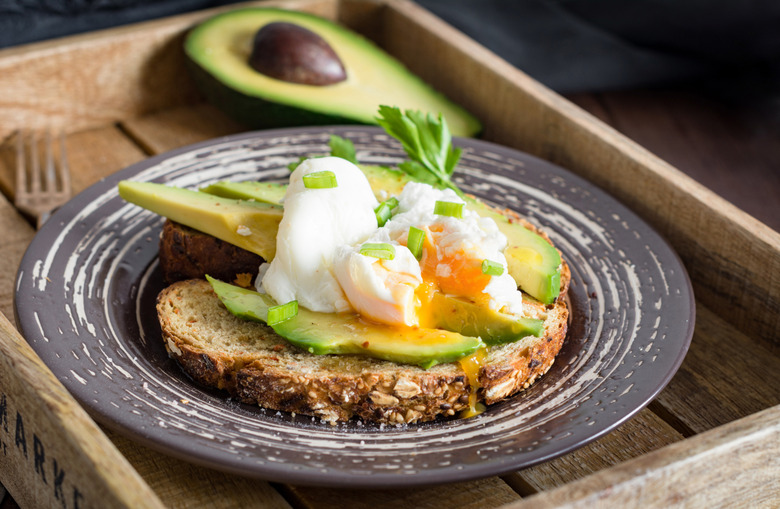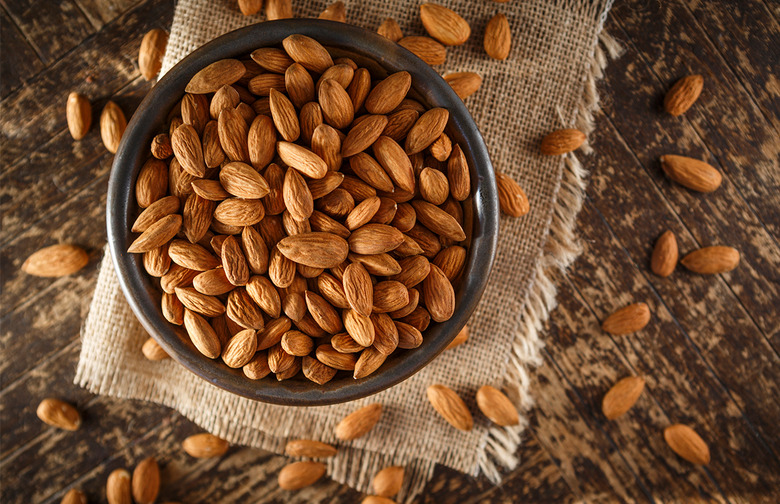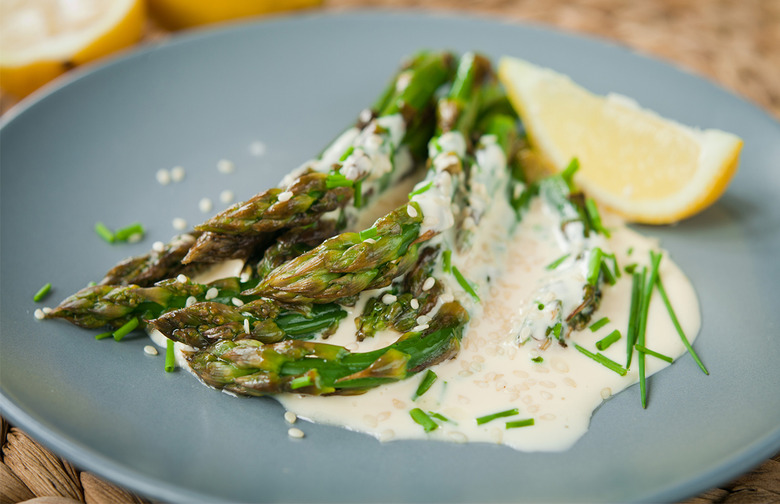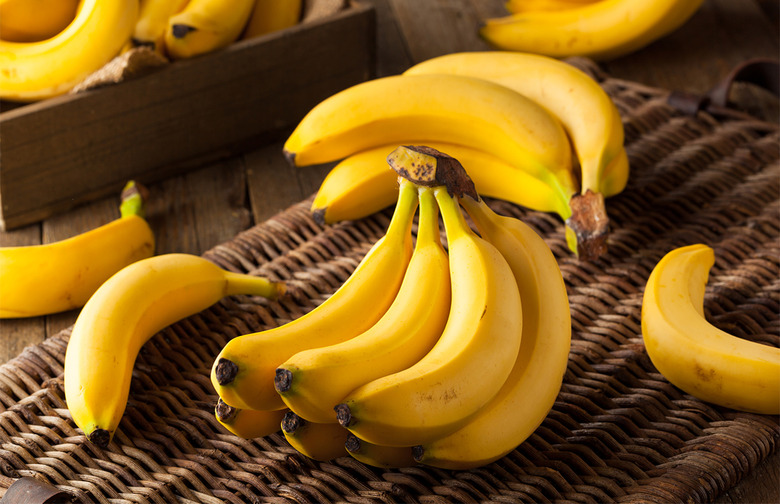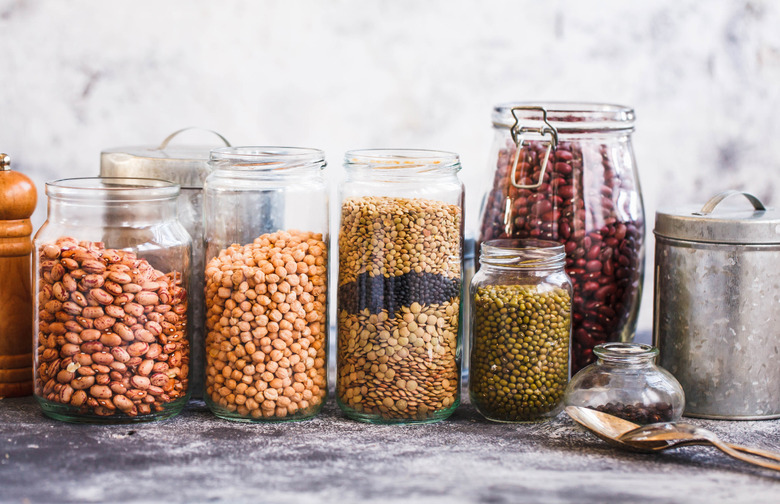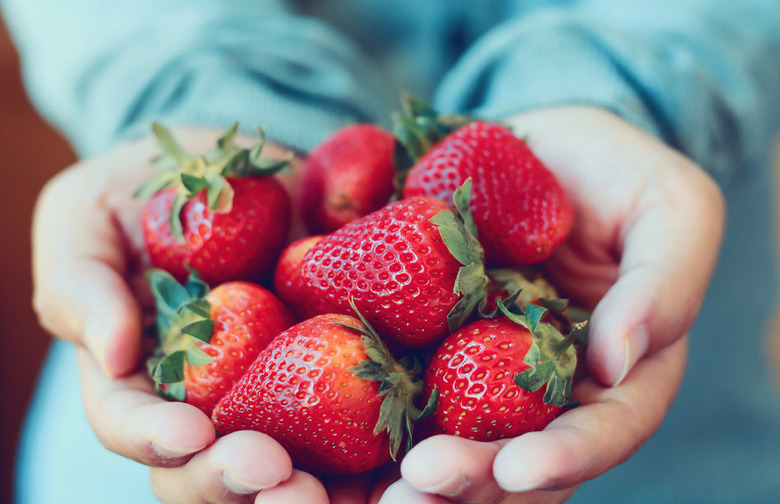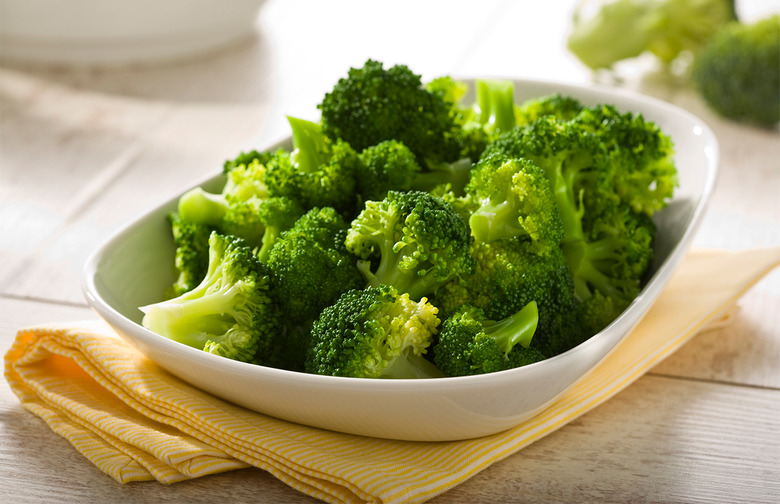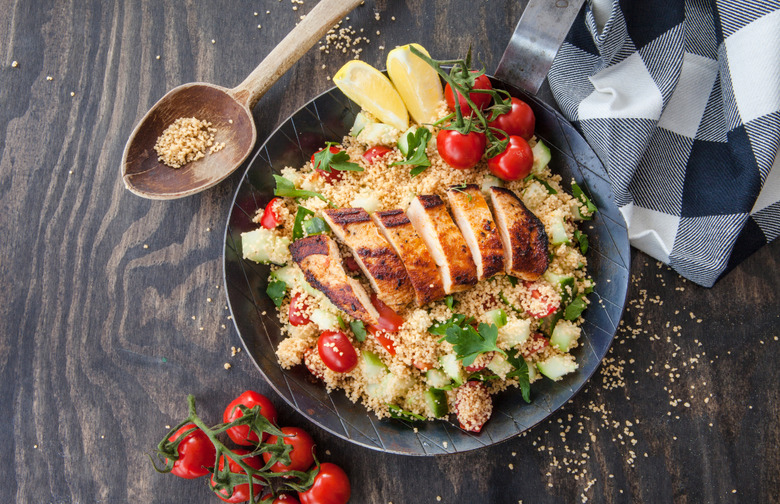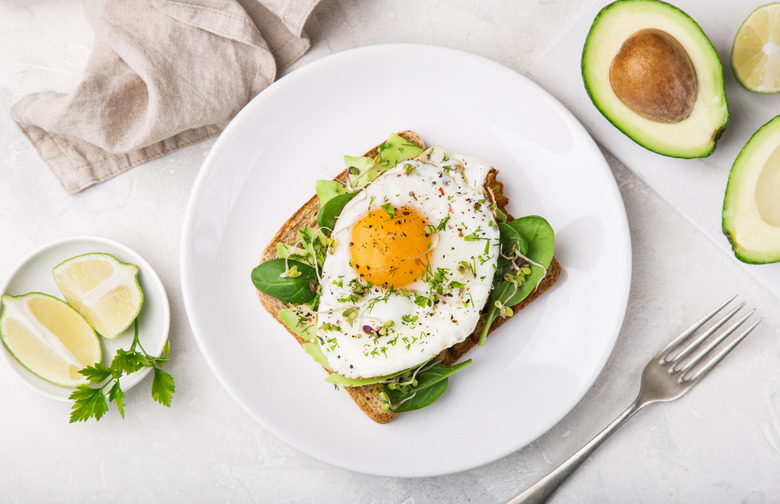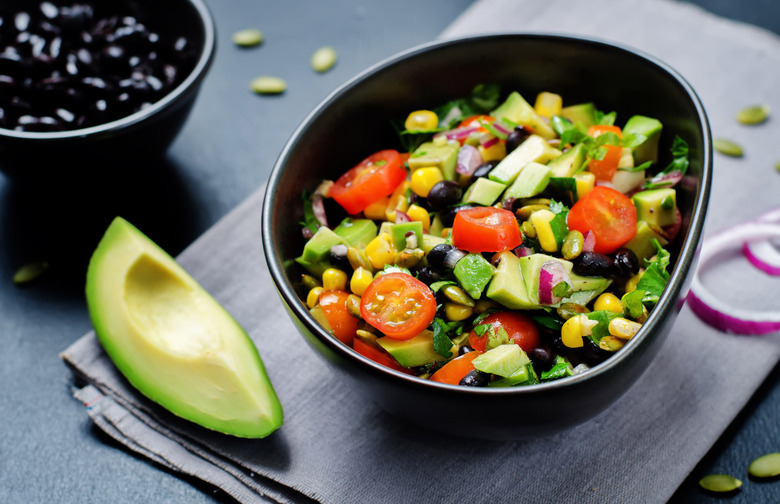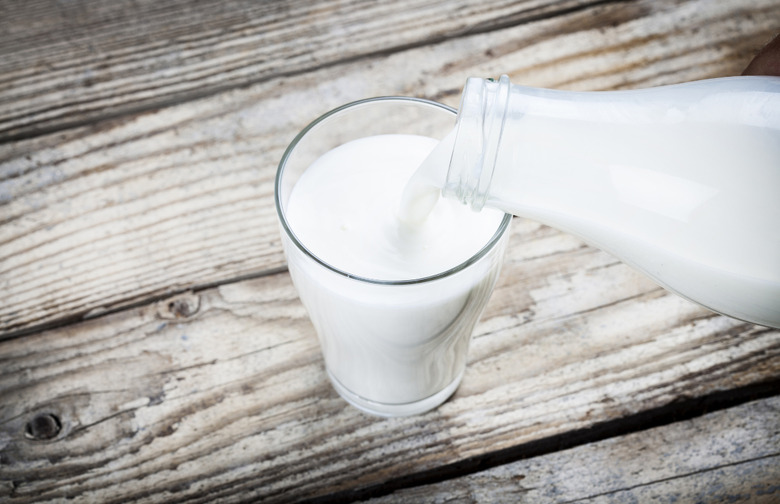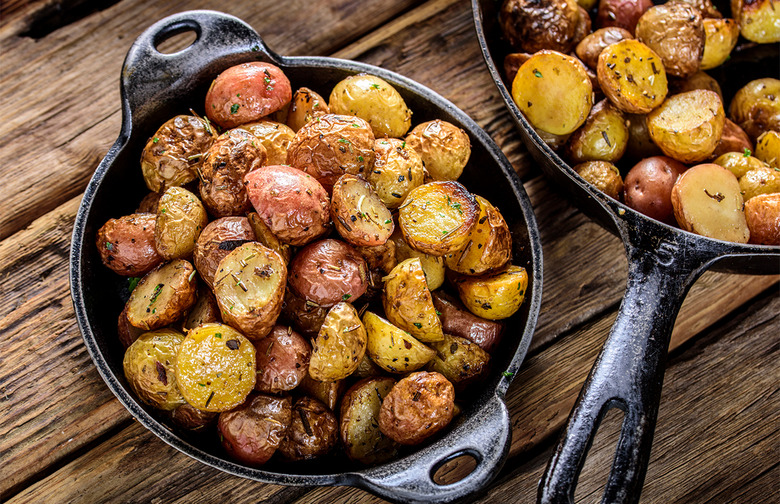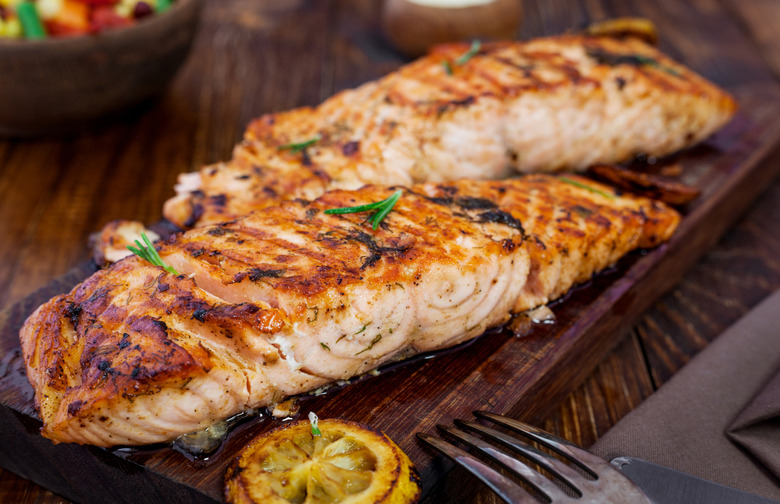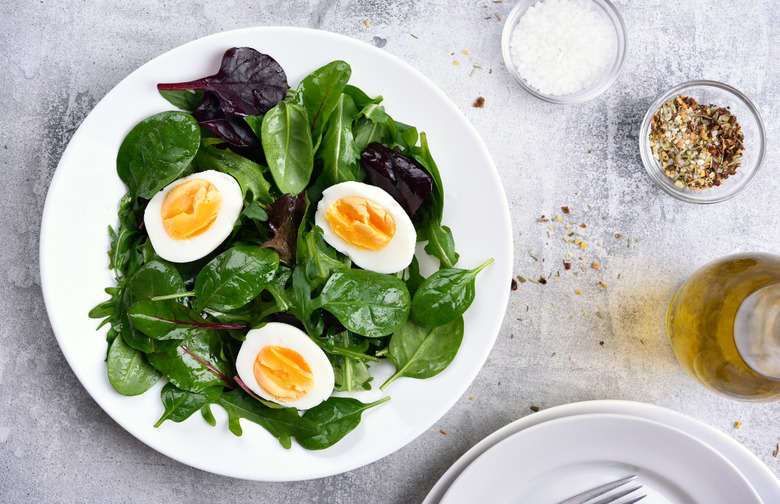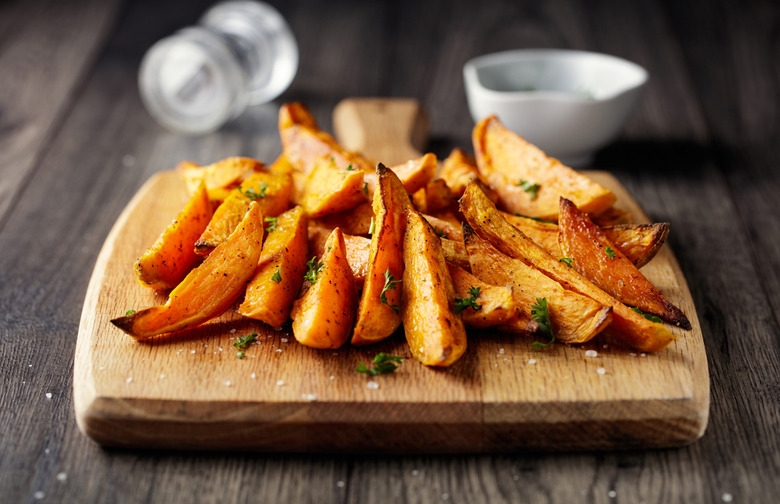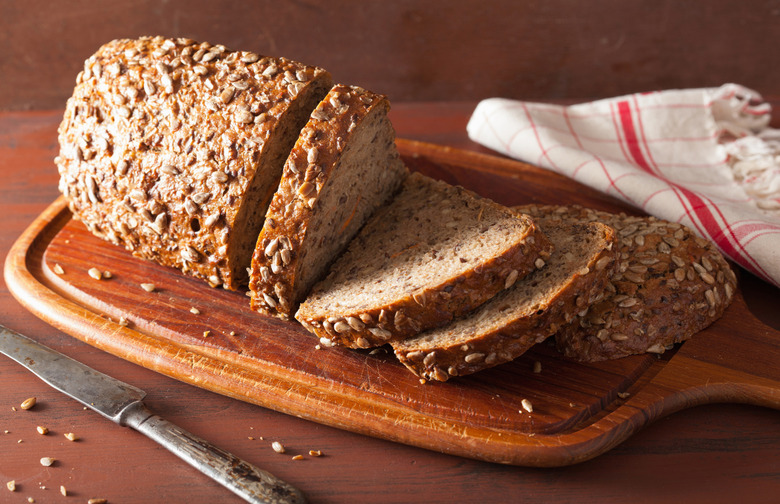You Never Need A Multivitamin If You Eat These 15 Foods Gallery
Don't decide whether or not to quit your multivitamin before speaking with your doctor or a nutritionist — a professional will be better equipped to tell you whether or not you truly need a supplement to get the nutrients you need. But the average healthy eater shouldn't need a multivitamin, in theory, to get adequate nutrition from their diet.
There are two main types of nutrients that the body needs: macronutrients and micronutrients. Macronutrients include protein, carbohydrates, and fat — all of which must come from the food you eat. Micronutrients are more difficult to keep track of, however, since not all foods contain them. A bag of Cheetos, for instance, has far fewer micronutrients than a vitamin-rich superfood.
According to the U.S. Department of Agriculture dietary guidelines, adult Americans may not get enough of certain micronutrients: calcium, fiber, folate, iron, magnesium, potassium, vitamin A, vitamin B12, vitamin C, vitamin D, and vitamin E. Many people choose to rely on a multivitamin to supply these crucial micronutrients. But instead of a multivitamin, a diet rich with these 15 nutritious foods could supply enough of these nutrients instead.
Almonds
This fruit — yes, almonds are a fruit — can boost your health in all kinds of ways. Almonds can lower your cholesterol and might even make you smarter. Eating a serving of almonds supplies your body with fiber, fat, vitamin E, manganese, and magnesium. Try spreading almond butter on some toast, munching on trail mix, or using almond slivers in a sweet or savory recipe.
Asparagus
It might make your pee smell weird, but it's worth that tiny consequence for the immense nutritional benefit this vegetable provides. It's been known to help ease anxiety and depression — perhaps due to the huge portion of vitamins and minerals. Asparagus contains vitamin K, folate, copper, selenium, vitamin B1, vitamin B2, vitamin C, vitamin E, dietary fiber, manganese, phosphorus, vitamin B3, potassium, choline, vitamin A, zinc, iron, protein, vitamin B6, and pantothenic acid. Get some delicious recipes that incorporate the indisputable superfood here.
Bananas
Bananas are best known for their potassium and fiber content, but that's not all this versatile fruit provides. Other nutrients in bananas, such as vitamin B6 and tryptophan, can help to boost your mood and overall health.
Beans
From black beans to lima beans, you can't go wrong with this nutritious staple. Your digestive system will thank you for all the fiber that beans provide, and the rest of your body will benefit from the copper, folate, iron, magnesium, manganese, phosphorous, potassium, and zinc. Beans are great additions to salad, wholesome ingredients to cook with, and a satisfying side for your barbecue. Click here for a guide to every type of bean and how to cook them.
Berries
Whether you're eating them fresh or baking them into a sweet summer treat, berries are a healthful staple you should always have on hand. Especially great for cold and flu season, berries are loaded with vitamin C and antioxidants. If berries aren't in season, they are absolutely worth buying frozen — and that way, they won't go bad!
Broccoli
Broccoli is one of those vegetables that truly cannot be overrated — it has many of the nutrients included in most multivitamins, including vitamin K, vitamin C, chromium, folate, fiber, pantothenic acid, vitamin B6, vitamin E, manganese, phosphorus, choline, vitamin B1, vitamin A, potassium, and copper. Yeah, that's a lot of nutrients. It also happens to be a main ingredient in many a delicious recipe, ranging from creamy pasta to cheesy soup.
Chicken
Perfect for busy weeknights, chicken is a lean source of protein with over 100 easy ways to prepare. Besides the protein, chicken is an unexpectedly rich source of vitamins and minerals. The full list includes thiamin, zinc, copper, manganese, vitamin C, riboflavin, niacin, vitamin B6, folate, vitamin B12, pantothenic acid, iron, phosphorus, and selenium. Whip up something savory in your slow-cooker or keep it simple by making a healthy meal from a supermarket rotisserie chicken.
Eggs
There are few foods as eggs-cellent as the simple, elegant egg. Don't skip the yolk — that's where most of the nutrients lie. From just one egg, you can derive a significant source of dietary fiber, vitamin C, copper, riboflavin, vitamin B-12, selenium, phosphorus, and iron. The best part about eggs is that you never have to get bored eating them. There are dozens of ways to cook your dozen eggs. From cook-ahead breakfast recipes to heavenly ways to cook deviled eggs, we have you covered. For a foolproof guide to cooking eggs any way from scrambled to fried, click here.
Fats
Fats are an absolutely crucial part of your diet — you should try to incorporate a source of dietary fat in every meal. Part of the reason healthy fats are so important is their role in nutrient absorption for your body. Fat-soluble vitamins, which include vitamins A, D, E, and K, are best absorbed by the body when paired with high-fat foods. Some foods high in fats are oils, nuts, seeds, butter, and avocados. Cook with butter or oils and pair other fat-rich foods such as nut butter to boost your nutrient intake.
Milk
We're not talking almond, cashew, or whatever other kind of plant-based milk. If you're trying to load up on nutrients, regular old cow's milk is likely your best bet. Milk contains important nutrients such as calcium, vitamin D, phosphorus, magnesium, potassium, vitamin B12, and zinc. If you hate drinking it, there are ways to cook with milk to ensure you get the bone-building nutrients you could be missing.
Potatoes
Since they're the main ingredient in lots of grease-laden foods like French fries and latkes, potatoes have a bad reputation. But potatoes can absolutely be part of a healthy diet so long as you know how to cook them. One potato has more potassium than a banana, plus vitamin B6, a ton of vitamin C, iron, and magnesium. For 50 of our best potato recipes, mashed and beyond, click here.
Salmon
This healthy seafood staple of the Mediterranean diet is known for its omega-3 fatty acids. But the truth is that it contains so much more. One 4-ounce serving of salmon contains more vitamin D than your recommended daily amount. Additionally, if you indulge in one of these delicious salmon recipes, you'll be eating vitamin B12, selenium, vitamin B6, niacin, phosphorus, choline, potassium, and biotin.
Spinach
Don't underestimate the power of leafy greens. Spinach has all kinds of important nutrients —it's an excellent source of vitamin K, vitamin A, manganese, folate, magnesium, iron, copper, vitamin B2, vitamin B6, vitamin E, calcium, potassium, vitamin C, phosphorus, vitamin B1, zinc, and choline. When you're choosing what to eat as a base of your salad, keep that in mind. Kale might be trendy, but once you try out a few of these spectacular spinach recipes, you'll forget all about it.
Sweet Potatoes
Vitamin A is one of the less common nutrients you need — don't miss out on sweet potatoes or another vision-boosting food, especially if you're trying to get all the vitamins you need from food alone. Since sweet potatoes can help you live past 100 according to some studies, we recommend getting your vitamin A from this healthy carbohydrate!
Whole Grains
Whole grains can add a whole lot of nutrients to your diet. Loading up on whole grains such as whole wheat bread, brown rice, quinoa, and other unrefined grains could help cut your risk of disease and regulate healthy digestion. These grains contain B vitamins, iron, magnesium, and selenium. If you're cutting carbs, keep that in mind — missing out on these nutrients could have some really uncomfortable consequences.
More from The Daily Meal:
15 Bedtime Rituals for Better Sleep
Vitamins You're Probably Missing
